
views
Oommen Chandy was hardly ever seen without a smile. The two-time chief minister, endearingly called “Kunjoonju” or OC by friends and followers, was always known to be a “people’s man”. Once during an informal meeting I had as a reporter with Chandy, he shared a very interesting anecdote during his mass contact programme (Jana Samparkka Paripadi). He had decided to spend 100 days receiving people’s grievances and suggestions over phone calls on Doordarshan Keralam.
“You know, I received a very interesting call. A man whose cow had not been providing milk for several weeks. He was a farmer, and his family’s livelihood depended on it. He asked me to find a solution that would make his cow give milk. It may sound ridiculous to you that he asked a chief minister that. But it was a very important issue for him. I immediately called the veterinary department and asked them to address the matter,” he said with his evergreen smile.
Such was the man that he even followed up on the issue to find out about the welfare of the cow and the farmer’s family. This was just a glimpse of the political leader whose people-connect programme was recognised by the United Nations.
Not the typical family man
A tweet from Oommen Chandy’s son, Chandy Oommen, saying “Appa is no more” also marked the end of a chapter of an illustrious career and stalwart in Kerala’s politics. Throughout his life, Chandy remained a tireless and revered Congress leader in Kerala, consistently putting the welfare of the people at the forefront of his endeavours.
Chandy Oommen once spoke to a Kerala-based newspaper and talked about how his father worked 24×7, without caring about his health. He also said that he rarely saw his father during his early childhood as the leader would spend hours travelling across the state addressing people’s issues and leading agitations that have been marked as major milestones in Kerala’s politics.
“When he was the chief minister, he declared his 100-day programme. He remained awake till 2 am and signed the files. Again he would get up in the morning at 4 and start sitting before the files. This he continued, giving little importance to his health. One day, I hid this file. Early in the morning he came and stood in front of me while I was sleeping. He worriedly asked, ‘Where are those files?’ It was the time when I felt guilty and ashamed,” Chandy Oommen had told Kerala Kaumudi in an interview a few years ago when his father completed 50 years as a politician.
Stood by the phone during Tikrit crisis
In June 2014, as war ravaged Iraq, 46 Indian nurses were being held in captivity by terrorists of the Islamic State of Iraq and Syria (ISIS) in the city of Tikrit. They were being held hostage for 23 days while the civil war raged between the Iraqi government forces and ISIS.
With luck on my side, I was able to get the contacts of a few of the nurses who had been held hostage and kept in touch to understand the situation as well as keep a tab on their well-being. As the day progressed, the war intensified, and the nurses feared for their lives. I would sit by my phone each night to monitor the situation due to the 2.5-hour time difference between Tikrit and India. The nurses would often call me in distress as they heard parts of their hospital being bombed.
I recall the days when Merina, one of the stranded nurses who was also in touch with the Indian and Kerala authorities who were working out a safe passage for their return, said to me over the phone, “I wish that they rescue us soon. We don’t think we will live to see another day. Please ask the government to help us.” Then the phone disconnected as their mobile ran out of charge.
The panic was palpable, and I would also send updates to the officials of a 24×7 helpline set up under the state NRK agency Norka to provide updated information on the situation. Oommen Chandy would sit by the phones to personally monitor the progress.
One night, at around 3.30 am, I received a phone call from Shivadas, one of Chandy’s trusted colleagues.
“Chandy sir wants to speak to you,” he said in a matter-of-fact tone. The next thing I heard was the CM’s voice, who in a very calm manner asked me, “Do you have any latest updates on the nurses? I hear some of them saying they are in touch with you and trust you.” Though I was taken aback, I briefed him based on my notes. He quickly asked me to keep his office updated.
When the nurses were safely brought back home with the intervention of then external affairs minister Sushma Swaraj and the Indian ambassador in Iraq Ajay Kumar, he acknowledged several people who were of immense help in the evacuation of the nurses.
Soon after, Chandy met me at his office in Thiruvananthapuram and smiled. “I have to thank you for the way you kept us posted, and it’s not just us, but you too have a role to play in saving those nurses’ lives. I heard you would speak to them and give them the strength to fight. I commend that.”
What else can a reporter ask? It was not pride that I felt, but admiration for the man who, despite being the CM, was a symbol of humility and genuineness.
The next day, Chandy said, “I am a strong believer in God and in prayers. I owe this rescue to the prayers offered by the lakhs of people and the grit and determination of these 46 nurses,” while receiving a thumping applause from all leaders in the Kerala assembly.
Knew his constituents by name
Once when I visited his humble home in Kottayam’s Puthuppally, there was a huge rush of people waiting to see him. The then former CM patiently met each and every one of them while sipping on a glass of ragi-based drink.
“I cannot stand to be alone. I have the company of people. It is what keeps me alive and kicking,” he told this reporter.
Chandy had named his Puthuppally Thiruvananthapuram residence “Puthuppally”, a home that his wife Mariamma bought with the help of a bank loan. This was his way to mark his respect to all his constituents who ensured he never faced defeat from the Puthupally seat.
He knew most of the people by their names, and that personal connection made him a politician with a difference.
Despite efforts from the CPM to unseat him from his bastion Puthupally by fielding veterans and influential leaders like VN Vasavan, Reji Zachariah, Cherian Philip, Susan George, among others in over 11 consecutive elections, all efforts were in vain.
Undisputed leader
Having been elected for the first time at the young age of 27 in 1970, he had since retained the seat in the years 1977, 1980, 1982, 1987, 1991, 1996, 2001, 2006, 2011, 2016, and 2021 until his health did not permit him to travel around as he was diagnosed with cancer.
Until 2021, Oommen Chandy never owned a house of his own. It was only in that year that the construction of his new home had begun. His final journey and remains will be kept for the public to pay their respects in the new house under construction, local Congress leaders say.
During one of the interactions I had with the people of Puthuppally during the elections in 2011, they all said in unison, “He does not need to campaign in this seat. We will always vote in favour of Oommen Chandy. We wish that he travels across the state and helps people who need it more and also strengthens the Congress in Kerala.”
Born on October 31, 1943, in Puthuppally, Kerala, Chandy delved into active politics at a very young age with the Kerala Students Union (KSU). He was popular even then as a student activist, who wanted to work from the grassroots level towards public welfare. Over the years, he rose in the ranks of the Congress and handled important portfolios like home and finance of the state cabinet. In 2004, he first got the opportunity to take charge as the chief minister of Kerala when AK Antony stepped down after the Congress poll debacle in the 2004 Lok Sabha elections.
Welfare programmes
Chandy’s impactful leadership earned him two terms as Kerala chief minister. During his first tenure (2004-2006), he endeared himself to the masses with initiatives like unemployment allowances and labour welfare programmes. In his second term (2011-2016), he launched the innovative “Mass Contact Programme”, fostering direct communication with the public to understand their needs.
Based on the feedback from this programme, he introduced social welfare pensions, subsidised ration schemes, and poverty-alleviation measures, positively impacting the lives of many. Chandy’s commitment to the welfare of the people and visionary approach left a lasting legacy in Kerala’s history.
Despite facing political controversies, such as the infamous solar scandal and bar bribery cases, Chandy displayed remarkable political acumen by skillfully guiding the UDF (United Democratic Front) through turbulent times, ultimately securing a narrow victory in the assembly elections. Late last year, the CBI also gave him a clean chit in the sexual exploitation allegation levelled by Saritha Nair, prime accused in the Kerala solar scam case.
Throughout his life, Chandy remained an indefatigable and highly respected Congress leader in Kerala, consistently prioritising the welfare of the people in all his endeavours. He leaves behind his wife, Mariamma, and three children – Maria Oommen, Chandy Oommen, and Achu Oommen.
‘It’s election time. Keep me in your prayers’
Recently, his wife Mariamma penned an emotional and heartwarming story of how she received a letter from Oommen Chandy who, at the time, was her prospective bridegroom. Their marriage was fixed just before an election. She thought it would be a love letter that he wrote to her. When she opened it, it carried two lines – “It’s election time. Keep me in your prayers.”
She prayed hard that he would win the election, the second one of his political career. “I did not want people to say his new bride brought him ill luck.”
Clearly, she turned out to be his lucky charm and his soulmate who not only remained by his side through thick and thin but also kept their family together despite Oommen Chandy being hardly at home.










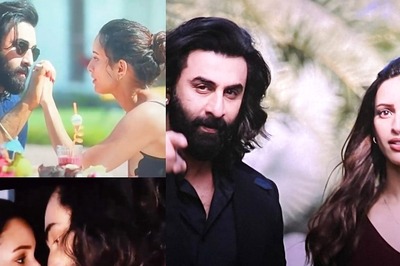
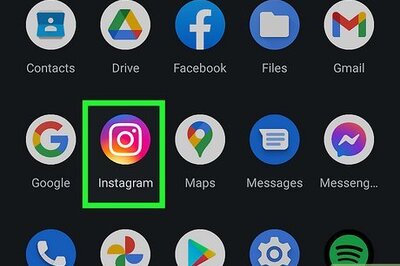

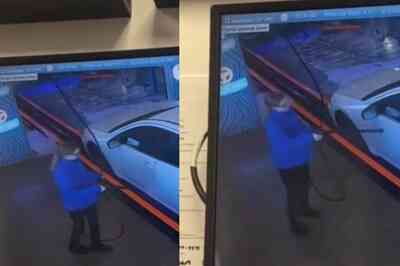
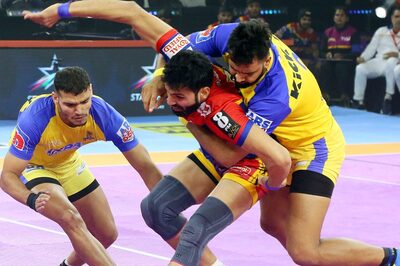
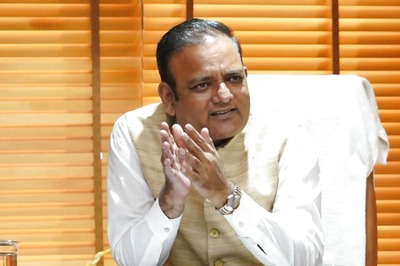




Comments
0 comment